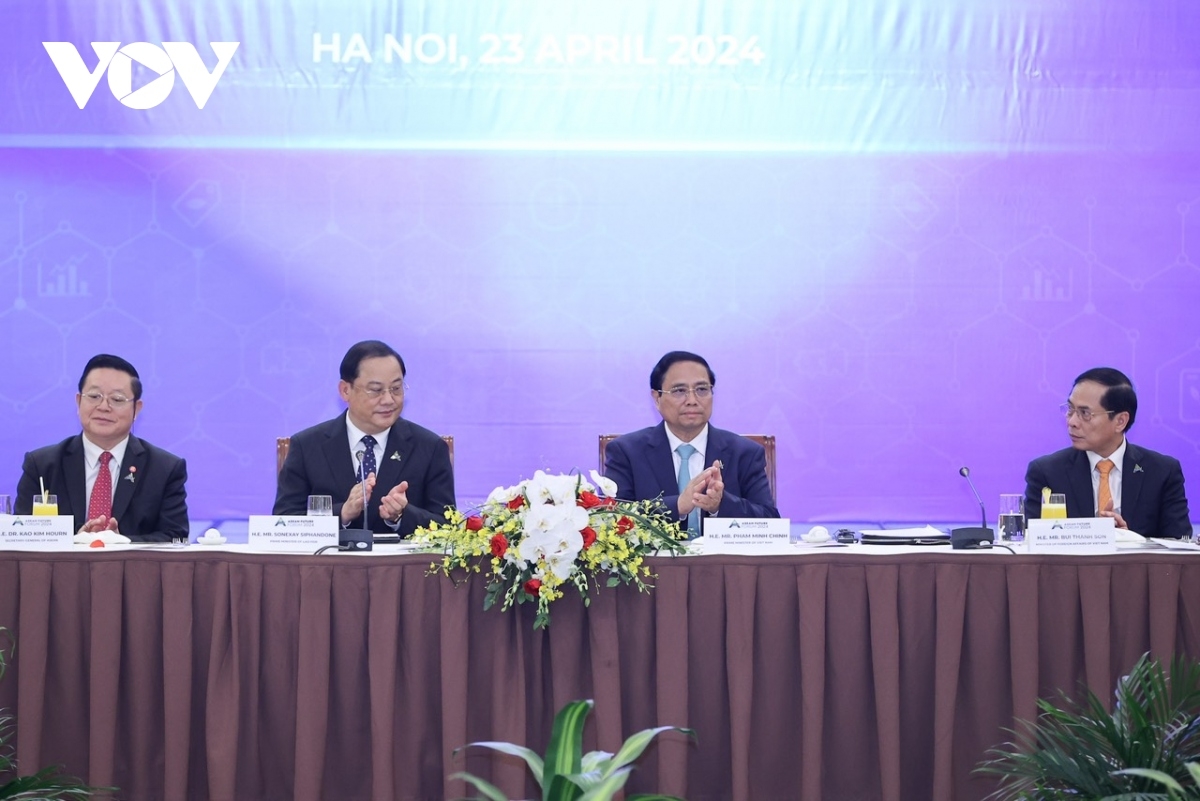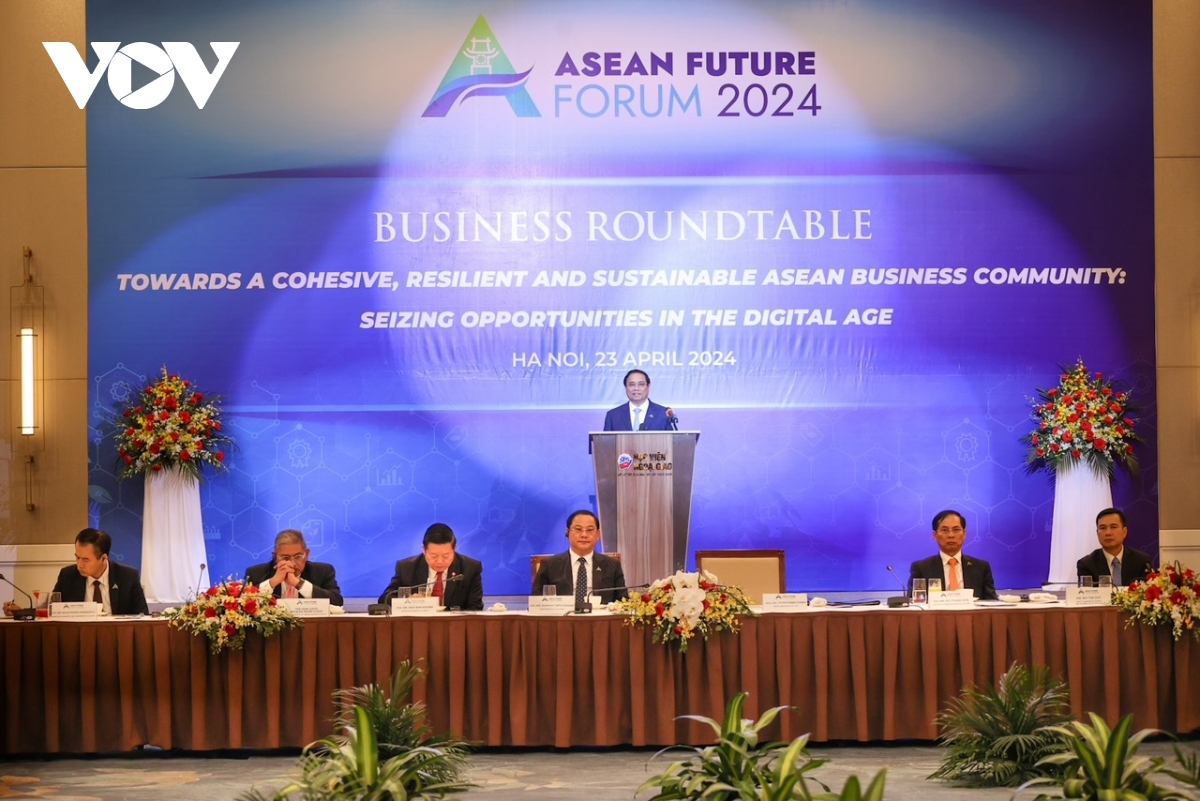
VOV.VN - Prime Minister Pham Minh Chinh proposed three breakthrough directions to make ASEAN a model in digital transformation globally while co-chairing a business roundtable towards a cohesive, resilient and sustainable ASEAN business community held in Hanoi on April 23 within the framework of the ASEAN Future Forum 2024.

Opening the discussion, Lao Prime Minister Sonexay Siphandone said that digital transformation is taking place strongly, not only in the region, but around the world across all aspects of social life. Therefore, there needs to be closer ties developed between subjects, including co-ordination between businesses, private sectors, governments, and countries to make the most of the benefits while minimizing and overcoming the challenges posed by digital technology.
Business leaders, leaders of ASEAN, and partner countries discussed opportunities and challenges in the regional bloc’s digital economic collaboration; solutions to ramp up ties between the region and partners in digital economic development; recommendations to form an ASEAN digital economic ecosystem; current requirements in e-commerce development in the bloc; and ways boost the development of the semiconductor supply chain in the region.
Participants also discussed the application of artificial intelligence (AI) in corporate governance and proposed developing ties with ASEAN member states; digital transformation in the information sector; co-operation in building high-quality digital human resources; and improving the investment environment to attract high-tech investment.
According to Scott Beaumont, president of the Asia-Pacific region of Google, ASEAN is a developing region that is a living testament to integration and connectivity.
Google is honoured to contribute to the digital transformation process and narrow the digital gap in ASEAN. Along with developing platforms and applications in the digital environment in Vietnam, Google is also co-operating in training technological human resources, especially human resources in the field of AI, providing resources, and building data sources.
The bloc’s digital economic potential can double its current growth. To do so, ASEAN needs to invest in infrastructure, train human resources, invest in research and development, and build data hubs, especially national data. Along with that, ASEAN member states need to ensure a strong enough legal environment to ensure investors achieve their set goals, he added.

In his speech, PM Chinh highly appreciated many profound, enthusiastic, constructive, and practical comments, clearly demonstrating the delegates' interest and desire to promote ASEAN's digital economic future.
According to the PM, ASEAN's digital economic development is driven by favourable factors such as an important geo-strategic and geo-economic location; large consumer market, young population structure, growing middle class; economic growth which has recovered quickly; an extensive network of links and economic co-operation; and the strong growth of the ASEAN digital economic ecosystem.
The nation determines national digital transformation and digital economic development on the basis of science, technology, and innovation as a strategic development orientation by 2030, with a consistent viewpoint of putting people and businesses at the centre. Indeed, the country views them as subjects, targets, driving forces, and important resources of digital transformation.
The Vietnamese Government chief underlined the importance of equal access to digital transformation and the digital economy on the principle of “harmonizing benefits and sharing risks”; ensuring transparency, safety, inclusiveness, and sustainability; strongly promoting ASEAN’s self-reliance and autonomy in digital transformation, based on specific factors, potential, and advantages of each country; and soon completing the ASEAN Digital Economy Framework Agreement.
He therefore suggested promoting a global, all-people, and comprehensive approach in ASEAN's digital economic development; and focusing on solving common and global problems that affect the entire population such as pressure on labour restructuring, cybersecurity, cybercrime, and the downside of AI.
The Vietnamese Government leader also urged countries, partners, and the ASEAN business community to step up collaboration in digital transformation to contribute to renewing traditional growth drivers and promoting digitalisation associated with the application of science and technology in industries and fields to create new growth engines.
It is also essential for parties to boost ties and support in financial resources, knowledge, technology transfer, and human resources training so that both the bloc and the nation can participate more deeply in frameworks, mechanisms, and supply chains in the region and throughout the world, he added.
VOV.VN - The ASEAN Future Forum 2024 (AFF 2024), themed “Toward Fast and Sustainable Growth of a People-Centered ASEAN Community” opened in Hanoi on April 23.
Bình luận
Bình luận của bạn sẽ được xét duyệt trước khi đăng